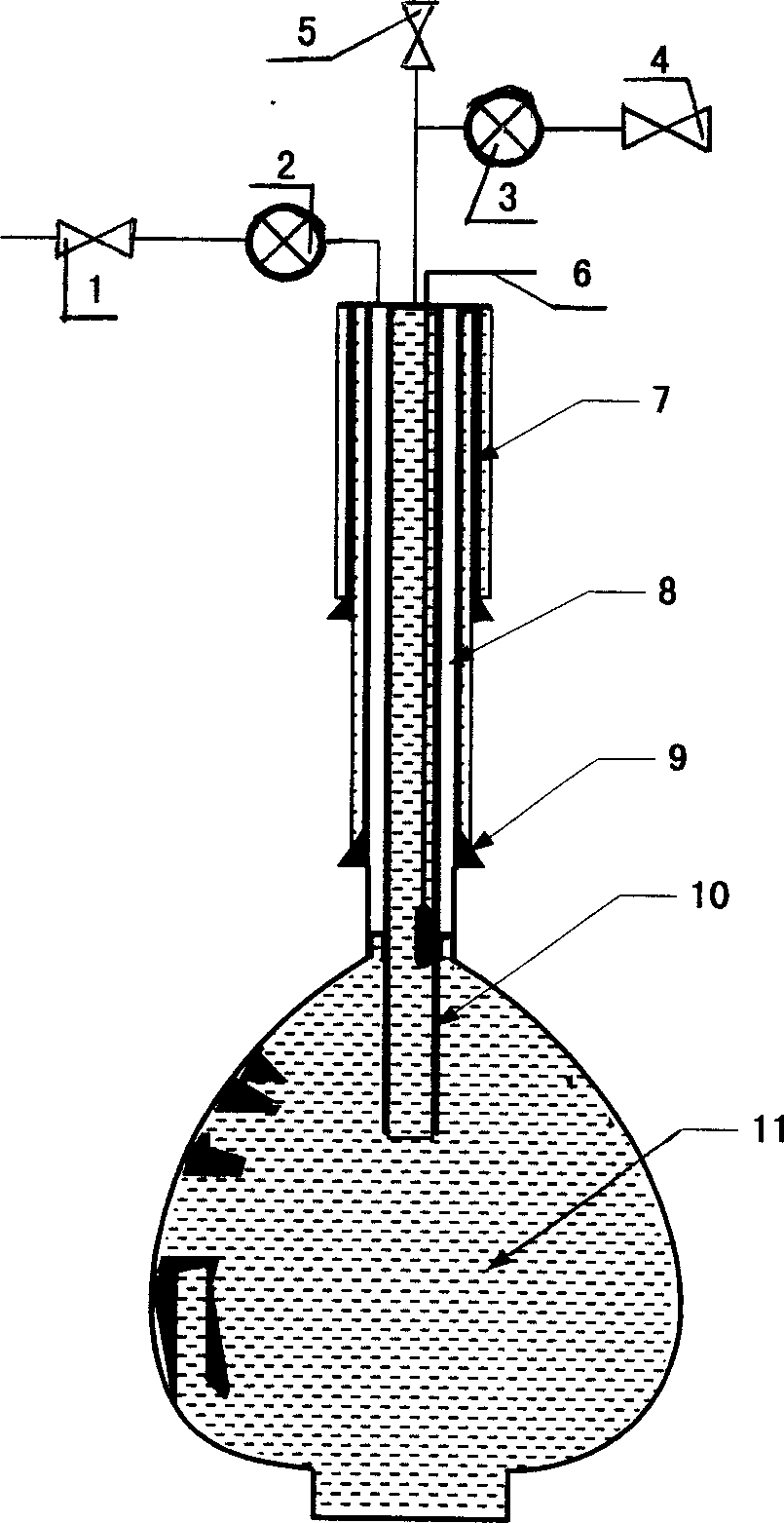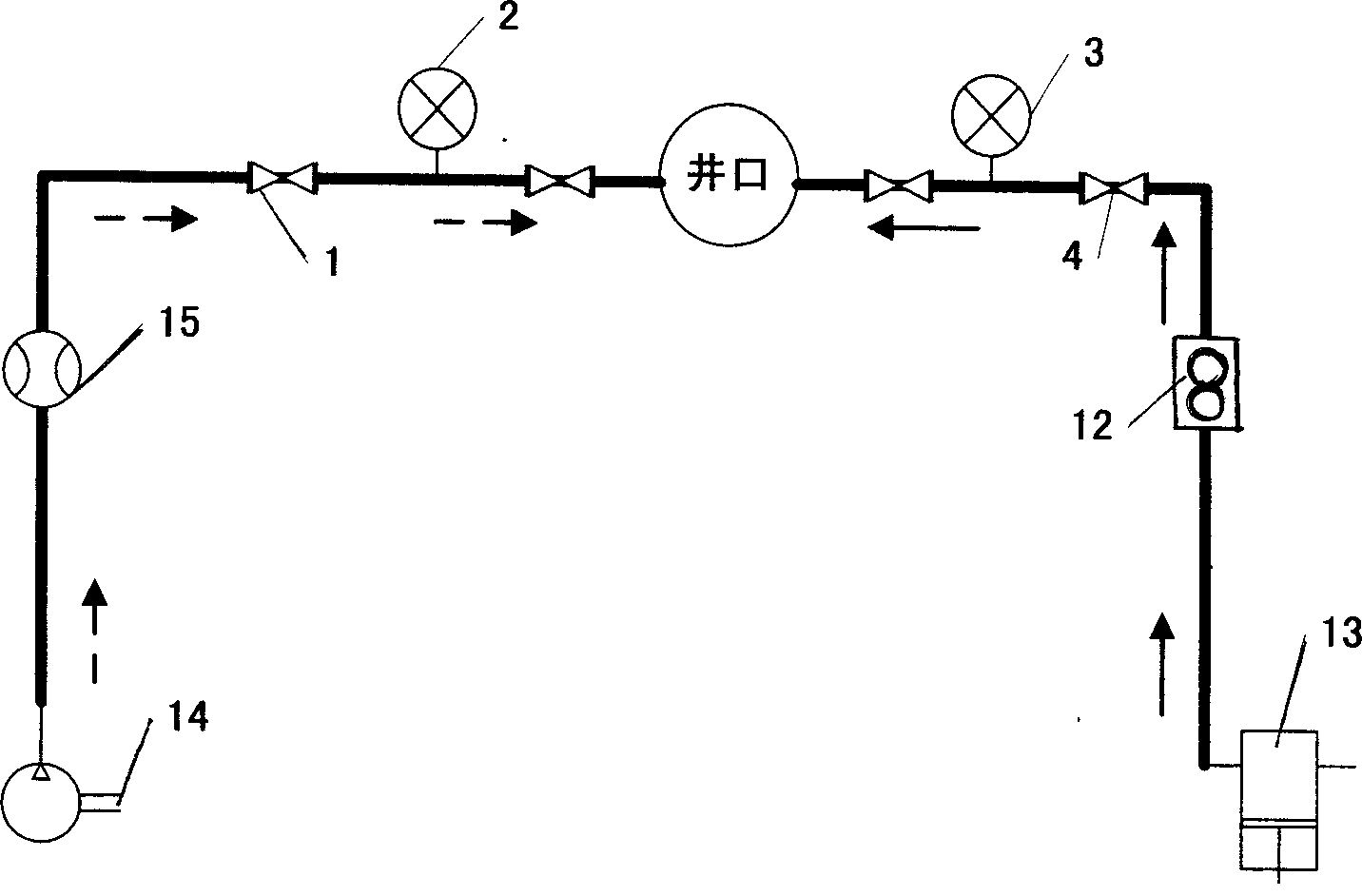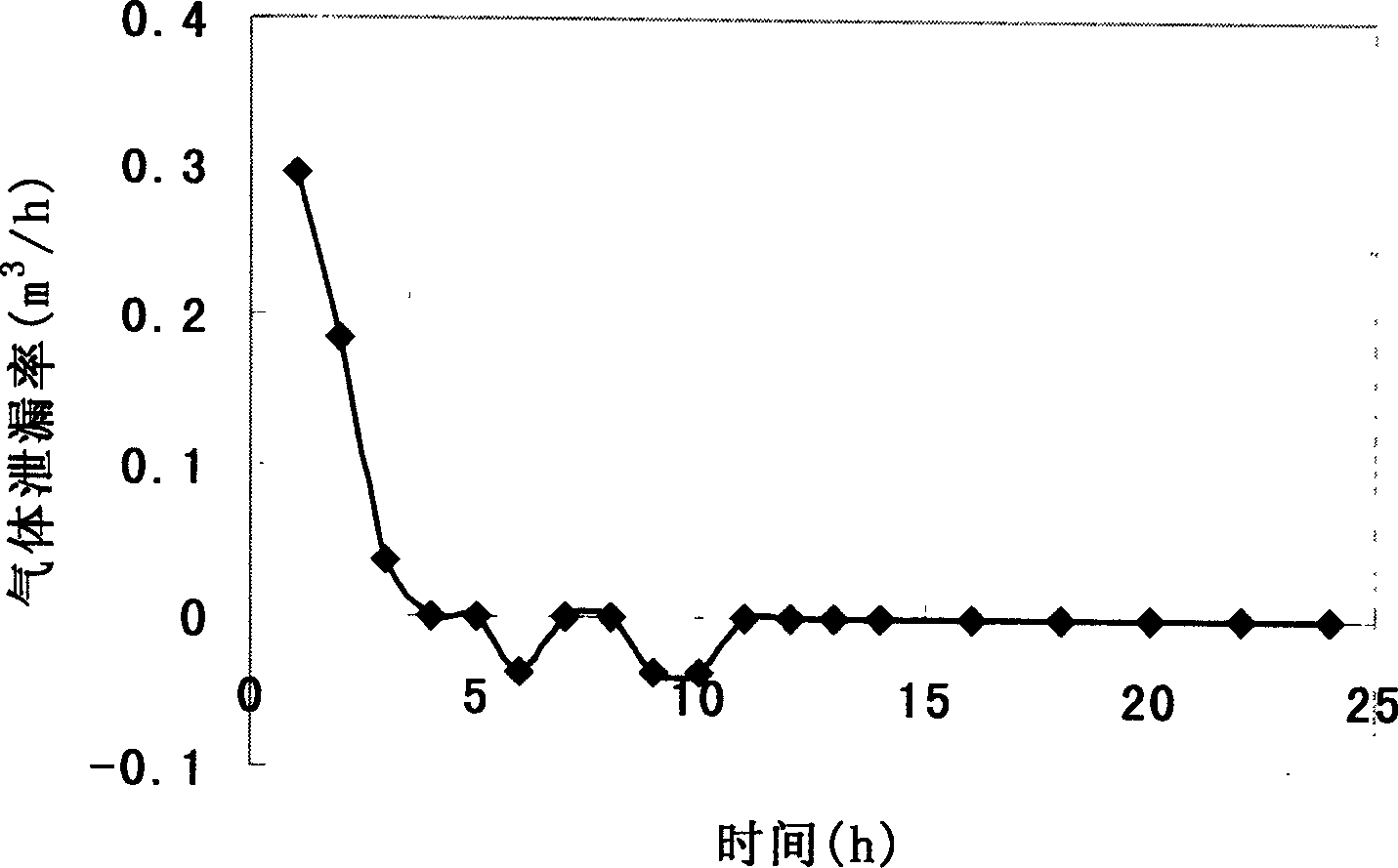Pressure test method for detecting seal performance of gas storage cavity of salt cavern
A gas storage and sealing technology, which is used in liquid/vacuum measurement for liquid tightness, by measuring the fluid's acceleration and deceleration rate, construction, etc., which can solve the problem of long test time, poor on-site operability, and inability to determine leakage Location and other issues, to achieve the effect of scientific and accurate evaluation method, strong on-site operability, and reduced pressure test cost
- Summary
- Abstract
- Description
- Claims
- Application Information
AI Technical Summary
Problems solved by technology
Method used
Image
Examples
Embodiment Construction
[0027] This method has been successfully tried for the first time in the pressure test process of the salt cavern cavity of the West 2 Well and West 1 Well in the Jintan area of our company from December 12th to 15th, 2004. The whole pressure test process was very smooth. The pressure test results show that within 24 hours, the maximum change in gas-water contact depth at the production casing shoes of Wells West 1 and Wells 2 is 0.118 m, and the cavity leakage rates of Wells Xi 1 and Wells 2 gradually decrease over time. Small, and finally stabilized at around 0, so the cavities of the salt-cavern gas storages in Wells Xi 1 and Well Xi 2 are well sealed, and the next stage of gas injection and brine discharge can be carried out. The successful pressure tests of Wells Xi 2 and Well Xi 1 were highly recognized by peer experts, and the pressure test methods were unanimously praised by experts. This method was successfully applied in the pressure test of Well Jinzi 1 in the Jin...
PUM
 Login to View More
Login to View More Abstract
Description
Claims
Application Information
 Login to View More
Login to View More - R&D
- Intellectual Property
- Life Sciences
- Materials
- Tech Scout
- Unparalleled Data Quality
- Higher Quality Content
- 60% Fewer Hallucinations
Browse by: Latest US Patents, China's latest patents, Technical Efficacy Thesaurus, Application Domain, Technology Topic, Popular Technical Reports.
© 2025 PatSnap. All rights reserved.Legal|Privacy policy|Modern Slavery Act Transparency Statement|Sitemap|About US| Contact US: help@patsnap.com



